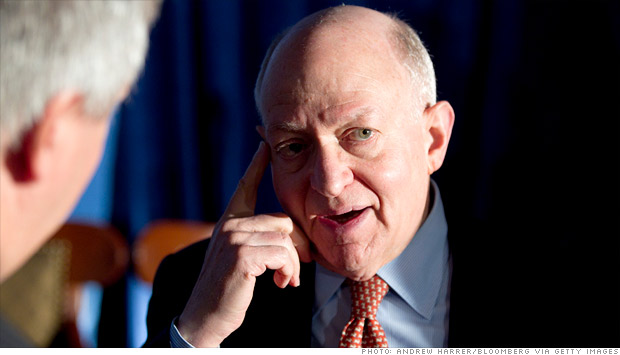
Martin Feldstein, an economics professor at Harvard, is an adviser to Republican nominee Mitt Romney. He served as the chairman of the Council of Economic Advisers under President Ronald Reagan.
We spoke with him at the Federal Reserve's economic symposium in Jackson Hole, Wyo., shortly after Ben Bernanke seemed to make a case for more stimulus from the central bank. Here's what Feldstein said were some of the potential risks:
The risk that worries me most is the risk about the exit strategy.
We don't have a clear idea of how far they would have to raise rates to deal with banks that have more than a trillion dollars of excess reserves deposited at the Fed. When the time comes, they may have to raise rates a lot, and at that time unemployment may be higher than it normally is when the Fed normally wants to raise rates -- that's because of this big amount of long-term unemployment.
I can imagine a situation where the economy starts to recover, where the unemployment rate is still nevertheless quite high, and if there's pricing capability on the part of businesses, the Fed wants to deal with that. Congress may be very unhappy with the thought of Fed tightening.
The Fed may feel they ought to tighten, but feel threatened that if they do, Congress may take away some of their powers. What does the Fed do if it thinks it could lose the right to buy anything other than Treasury bonds or the right to buy the quantity of bonds it's been buying?
It would be a difficult decision. When I talk to people at the Fed about this, they say -- 'we will do the right thing.' The only question is, what is the right thing? Is it the right thing not to risk losing authority, or is it the right thing to raise interest rates even if it involves that?
The more liquidity you put out there, the greater that problem is going to be.
Some economists have recently raised more fears about the Fed fueling a bond bubble. How would the scenario play out, if a bond bubble burst? Who would the main victims be?
Is there a potential bond bubble now? Absolutely.
If the Fed weren't buying and if the Chinese achieved their trade goal, ceasing to have a current account surplus (as they have said in their five-year plan) ... they will not have the ability to buy our bonds. In fact they would have to sell bonds if they want to go around buying other things.
In a similar fashion, if the Japanese economy begins to pick up, they could also be in a position where they're no longer buying our bonds.
Put all that together, and you could see interest rates returning to more normal levels. This spills over into equity markets, and if longterm bonds go up, mortgages go up, and the housing market gets hurt.
We would all be the victims.
What would this mean for the Fed's balance sheet? Would there be a real loss?
If they're sitting there holding longterm bonds, the Fed is at risk of a capital loss. In a sense, that doesn't matter. It's a paper loss, they haven't sold it, they're just holding it -- so I guess in that sense, there is no loss.
But their opponents in Congress will say the Fed just lost $200 billion and in an accounting sense, that will be true. It's an extra risk that the Fed takes about its own longterm authority.
No comments:
Post a Comment